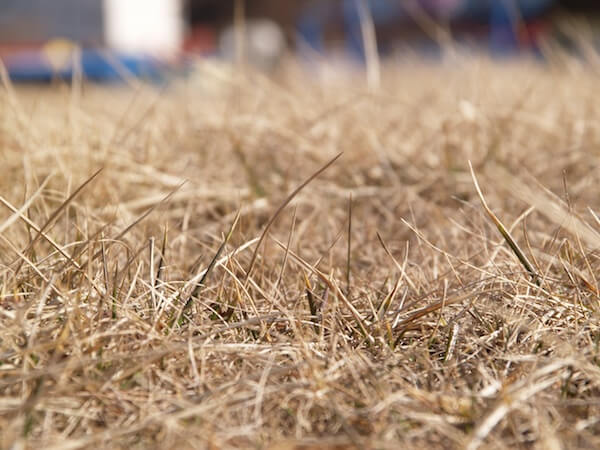
Heat Stress or Drought Stress?
As spring approaches in Florida, it is time for property owners to adjust their landscaping maintenance to account for a rise in temperature and seasonal rain patterns. Heat stress is most prevalent when a lawn is not prepared to handle the shift in temperatures. As the heat lingers, the effects of drought begin to take a toll on lawn health. Environmental stressors play a huge role in how we approach each lawn and landscape we are entrusted with at Duda Sod.
Heat is a Powerful Force in the Environment
People feel the effects of heat stress, so it makes sense that grasses, plants, shrubs, and trees are impacted.
- Sunburn is a problem for more than just the human species. When dehydrated, greenery is more susceptible to sunburn.
- Heat also means the soil will dry out quickly, so you’ll need to pay attention to rainfall amounts and water the lawn as needed.
- Although insects and pest take advantage of the weakened state of the landscaping, it is crucial to limit the number and strength of chemicals used in hot weather.
- Weeds have a tendency to attempt a takeover of the lawn during extreme periods of heat without enough rain to compensate.
Heat Stress — Time to Take Action
Heat stress can be detrimental to your Florida lawn. Disease, insect infestation, and weed infestation are more prevalent when the weather stays hot for a significant period of time. You can do a quick check to determine if the heat’s impact is becoming troublesome. Look for gaps in between the sidewalk or driveway and your lawn. Heat causes water to evaporate more quickly, which in turn causes soil to become more compact, causing gaps.
Drought Stress — Knowing is Half the Battle
University of Florida guidelines suggest that watering lawns on an as-needed basis is one of the best ways to combat environmental factors such as heat and drought. In order to do this, it is important to recognize the signs of water-related stress in grass. Grass, plants, and shrubs show stress when the amount of water lost in transpiration is larger than the amount of water available for the plants’ ongoing needs.
If you observe closely, you will notice that in an attempt to conserve water, the leaf blades of most grasses fold in half lengthwise. Lawns tend to lose their bright, vibrant green color the longer they suffer the effects of drought. Heat and drought work together to dehydrate our landscapes, making it difficult to keep up with the watering needs of your lawn. One indicator that you need to change your irrigation schedule comes in the form of footprints. Dehydrated plant walls lose elasticity, so footprints last from several minutes to several hours after they’re made.
Hot Weather Lawn Care Tips
Knowing the type of grass you have can set you up for success. The University of Florida has species-specific information on Florida’s grasses to help keep property and business owners informed. Set your lawn mower to the highest height to give your grass a fighting chance. When grass grows longer, the root system grows stronger and helps slow soil erosion. Healthier soil means more effective use of water with less loss from run-off. Allowing grass to grow longer also protects it from the effects of the sun.
Lawns that are kept on the same irrigation schedule year-round are not automatically healthier than lawns watered on an as-needed basis. In fact, failing to take environmental conditions like heat and rainfall into consideration can hurt your lawn. Too much or too little water can impact plant root development and leave the lawn unable to cope with changes. Not taking the amount of daylight and heat into consideration means you’ll likely end up with a dehydrated lawn. Leaving the irrigation system on during rainy periods brings a different slew of problems from root rot to fungus overgrowth.
You Are Not Alone
Figuring out how to cope with an endless list of environmental forces requires diligent work. Extreme heat, periods of drought, and tropical storms or hurricanes have to come into play as you plan to care for your Florida lawn. Our professional lawn care experts at Duda Sod can help you establish an appropriate seasonal schedule. A rain sensor lets the system know when watering is needed. Trust the experience of the team at Duda Sod to keep your lawn healthy year-round.